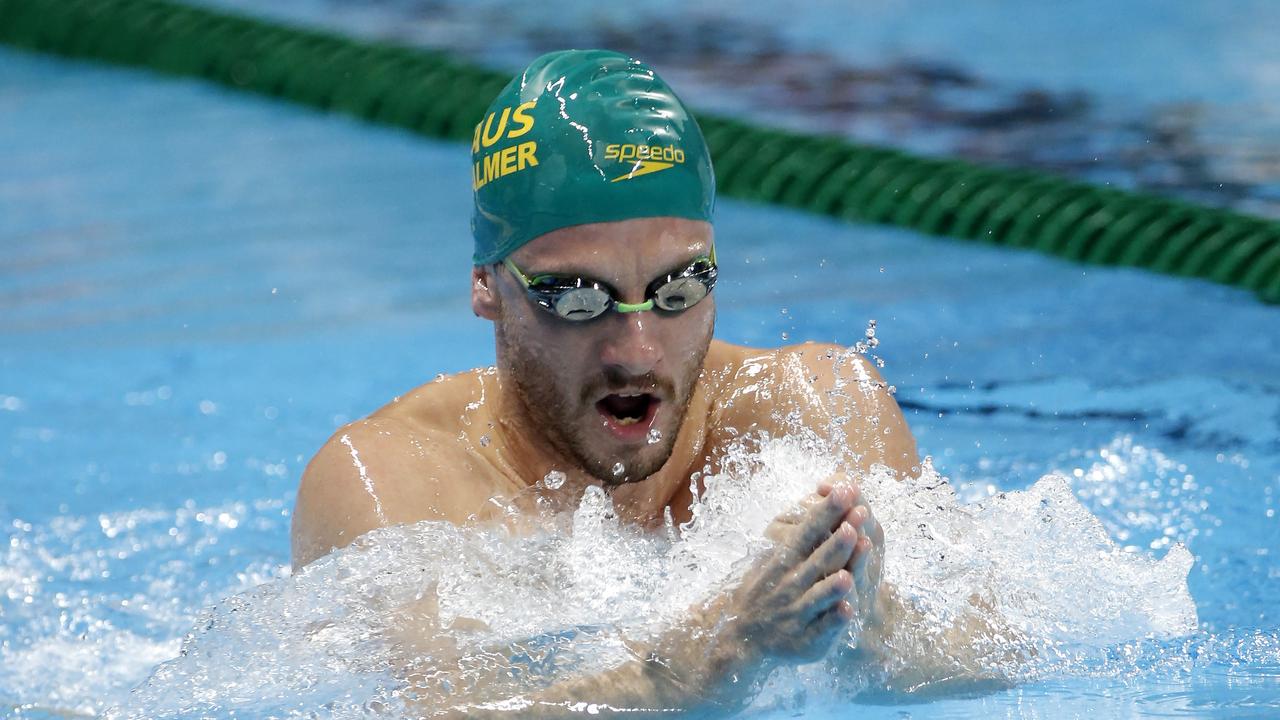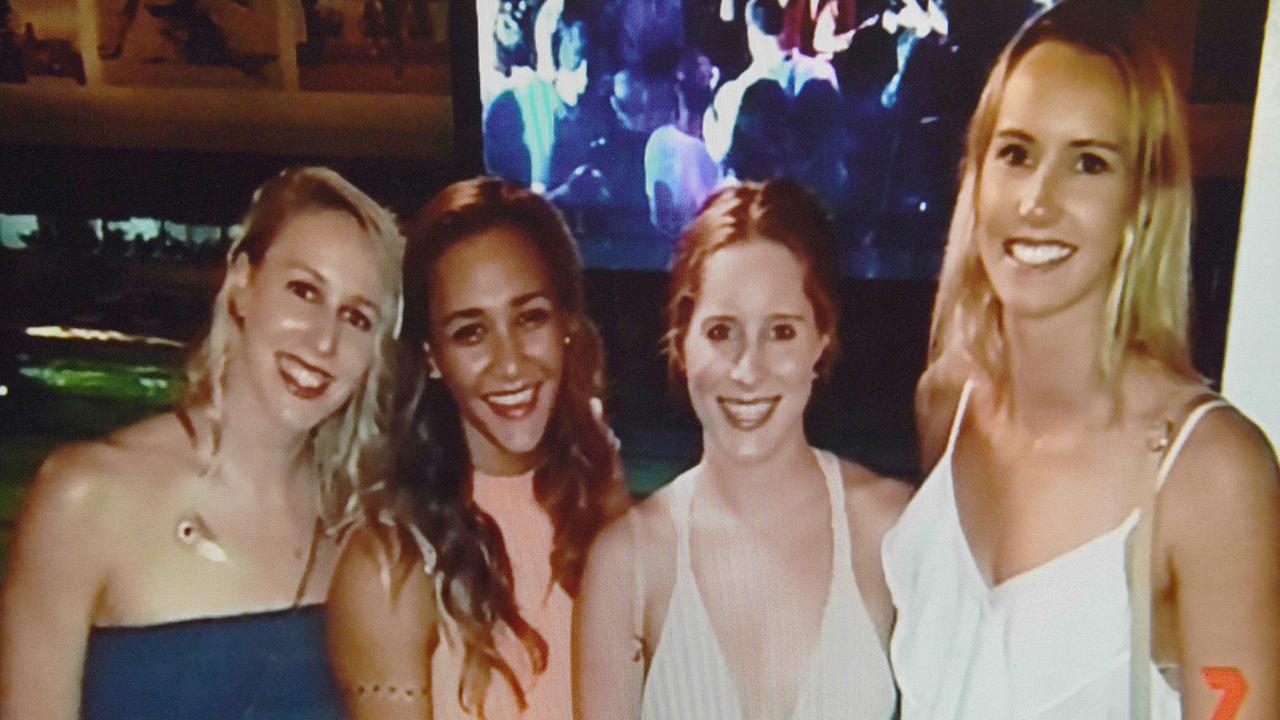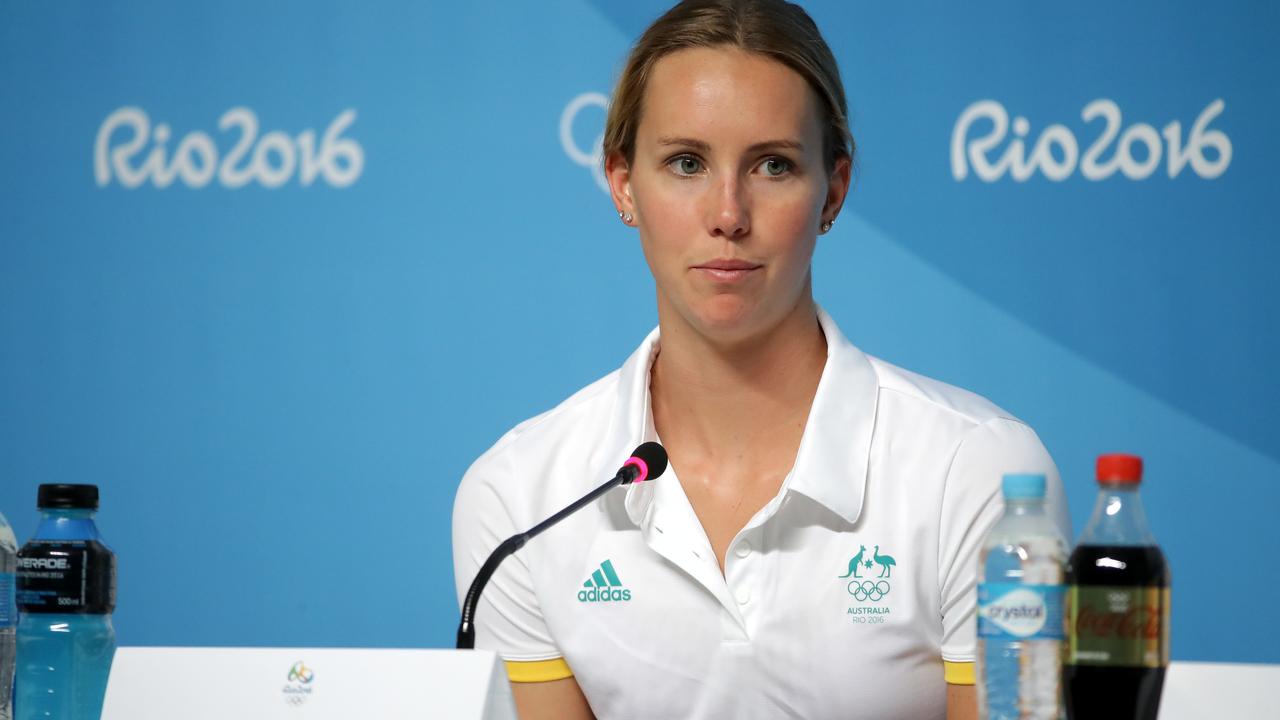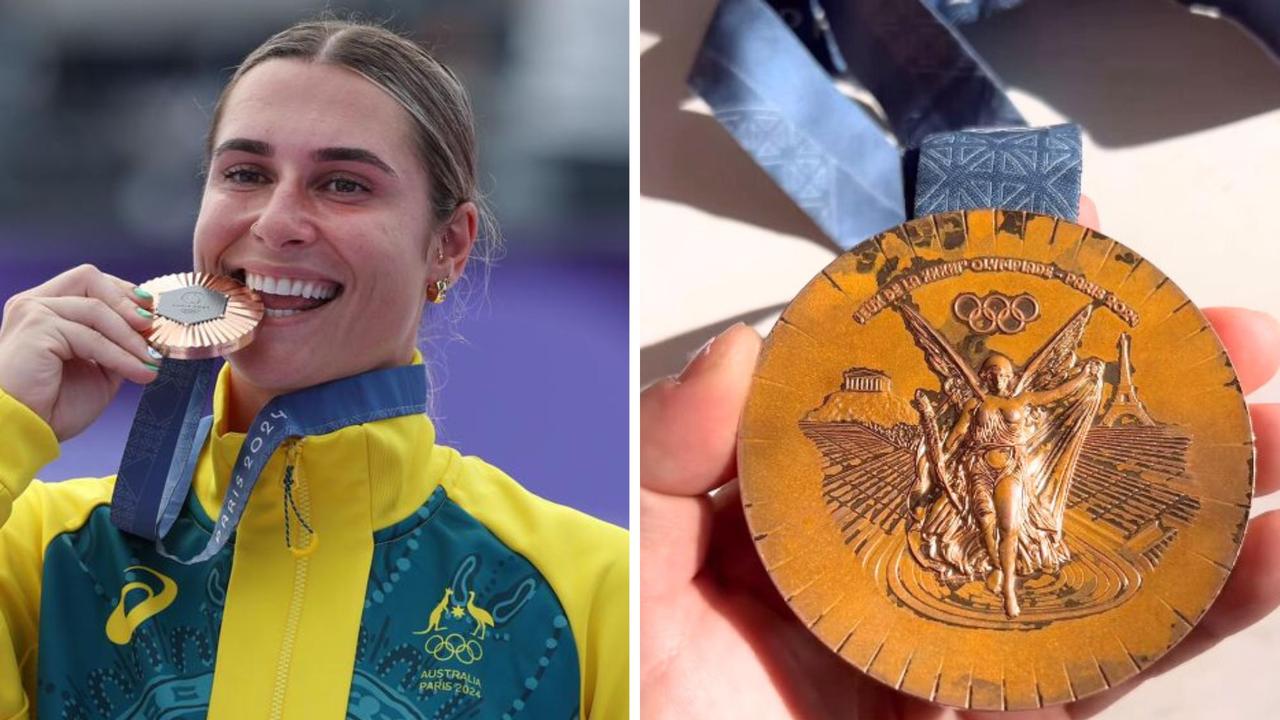Emma McKeon wasn’t always Australia’s golden girl
Almost everyone knows Emma McKeon’s name after a historic medal haul in Tokyo, but it wasn’t just medals she was making headlines with in Rio.
Australians have a reputation around the world as knowing how to have good time and being obsessed with sport — so it perhaps isn’t too surprising that our athletes have been known to party hard at Olympic Games over the years.
Washing machines have flown out of windows and people have been held up at gunpoint in wild celebrations that have sometimes landed Aussies in a spot of bother.
Even our golden girl in Tokyo Emma McKeon made headlines for a night out at the Rio games that almost saw her banned from the closing ceremony.
It seems that Tokyo is no exception to the rule, with a several reports of bad behaviour emerging.
Alleged bad behaviour in Tokyo
Overnight, reports emerged of alleged alcohol-fuelled bad behaviour by Australia’s Rugby 7s and football teams on their journey home from the Tokyo Olympics.
Japan Airlines has sent a written complaint to the Australian Olympic Committee following the inappropriate behaviour on the flight, 7 News reported on Tuesday.
The AOC confirmed it had been made aware of “unacceptable behaviour” from members of the rugby and football codes on the flight into Sydney on July 30.
AOC Chief Executive Officer Matt Carroll said while there were multiple sports sharing the flight, the rugby and football teams had taken full responsibility.

Olympic Village antics
It follows reports a handful of athletes from the Australian men’s rowing and rugby teams left their Olympic Village rooms in ruins.
Damage was reportedly caused to rooms and cleaners were called in to clean up vomit.
The Australian Olympic Committee played down the accusations, saying only a few athletes were involved in the “disgusting” state rooms were left in.
However, Australians have had a bit of a history of wild Olympics celebrations. Here are some of the best.
Blitzed in Rio and held up at gunpoint
Perhaps the wildest Olympic celebration of all time took place on the bustling streets of Copacabana when Australian swimmer Joshua Palmer went out for a boozy late-night bender that ended with him claiming he was robbed at gunpoint.
Palmer, who made a low-key Olympic debut that lasted just over one minute in the 100m breaststroke heats, was controversially prohibited from going to the closing ceremony after they breached team rules by having a late night out during the games.
He was found disoriented in Copacabana and says a man forced him at gun point go to an ATM, withdraw $1000 cash and hand it over.

It was reported that Palmer had stayed out all night drinking at beach bars.
When he arrived home he told The Advertiserhe planned to tuck into his favourite food and catch up on some much-needed rest.
“KFC … that’s pretty much it (for the day), and sleep I think,” he said.
Asked if he would have done anything differently he said he would have just told his team leader what he was doing that fateful night.
“I did the wrong thing by not sending a text message to my team leader so I took the punishment on the chin and had a good watch of it on TV,” he said.
Golden girl almost barred from ceremony
Almost everyone in Australia now knows Emma McKeon’s name after she scooped up a total of seven medals at this year’s games — the equal most by any woman in any sport in Olympic history.
However, it wasn’t just medals she was making headlines with in Rio — despite winning four of them including a gold.
At that games in 2016 she was disciplined after failing to return to the Olympic Village following a night out with teammates.
She and Palmer were in a group that left a nightclub in Copacabana in the early hours of the morning, with their teammates heading back to the village and not breaking any rules.

However, the then 22-year-old had chosen to stay with swimming friends in the Copa district without informing team management.
The Australian Olympic Committee initially banned her from the closing ceremony, but then reversed its decision and allowed her to take part.
McKeon, who won 4x100m freestyle relay gold, had sent Australia’s chef de mission Kitty Chiller a handwritten letter requesting her ban be lifted.
Chiller told a news conference: “The tone and content of her letter, and her conversation with me, proved to me that she now very much understands the seriousness of our safety protocols.”

Washing machine flies out of the window
It’s not every day you see a washing machine flying out of a window but that’s what happened at the Australian team’s residential tower block in the Delhi 2010 Commonwealth Games.
Local media reported the incident at the athletes’ village was sparked after the Australian cricket team lost its second Test match against India.
“Enraged by the humiliating loss some athletes, according to highly placed sources in Delhi police, went berserk, destroying electrical fittings and furniture in their tower in the Games village on Tuesday and Wednesday,” the Times of India said in a front-page story.
Australia later agreed to pay 10,000 rupees ($A232) for the washing machine.
The Australian embassy in New Delhi admitted that “spirited celebrations involving the Australian team and a number of other teams” had taken place, during which a washing machine was damaged.
It said it was “unclear who did the damage, what their nationality was, and whether it was deliberate or accidental”.

‘Toxic’ drinking and drugs environment
Australian swimming officials vowed to “win back the admiration of a nation” following the release of a damning report that blamed a “toxic” team environment at London 2012 which led to the country’s worst Olympic pool performance in 20 years.
It was the first time Australia had failed to win more than one swimming gold medal since 1992, and the subsequent independent review revealed problems throughout the team — from lack of leadership at the top to unacceptable behaviour by the athletes.
“Standards, discipline and accountabilities for the swim team at the London Olympics were too loose,” the report said.
“There were enough culturally toxic incidents across enough team members that breached agreements (such as getting drunk, misuse of prescription drugs, breaching curfews, deceit, bullying) to warrant a strong, collective leadership response that included coaches, staff and the swimmers. No such collective action was taken.”
– with Brooke Rolfe




